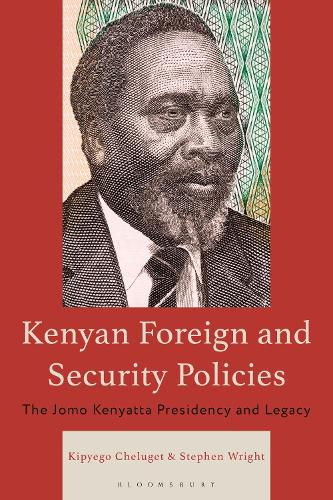Readings Newsletter
Become a Readings Member to make your shopping experience even easier.
Sign in or sign up for free!
You’re not far away from qualifying for FREE standard shipping within Australia
You’ve qualified for FREE standard shipping within Australia
The cart is loading…






Kipyego Cheluget and Stephen Wright evaluate the legacy of Kenya's first president, Jomo Kenyatta.
Following a nationalist uprising and brutal colonial repression, Kenya became independent in December 1963. With much of the agricultural land still under European settler control, Jomo Kenyatta promoted foreign and security policies to balance Kenyan, African, and settler interests, attracting foreign investment into the new country. Kenyatta's programs, however, favored the West and established a growing need for British and American security guarantees to sustain Kenya in an increasingly unstable Eastern African region. In this book, Cheluget and Wright show that despite the growing pressures within Kenyan civil society for diversification of policies and redistribution of economic wealth, Kenyatta consistently maintained pro-western policies until his death in 1978. This book is split into 3 parts. Part I discusses the growth of Kenyan nationalism, the end of the colonial era, and the birth of the Kenyan State. Part II considers the political economy and development strategies of the Kenyan State. Part III assesses the degree of continuity of the succeeding leadership portrayed from the Jomo Kenyatta presidency. Through this detailed analysis, the authors examine Kenyatta's policies and examine how successive Kenyan presidents have largely maintained his policies and venerated his legacy.
$9.00 standard shipping within Australia
FREE standard shipping within Australia for orders over $100.00
Express & International shipping calculated at checkout
Stock availability can be subject to change without notice. We recommend calling the shop or contacting our online team to check availability of low stock items. Please see our Shopping Online page for more details.
Kipyego Cheluget and Stephen Wright evaluate the legacy of Kenya's first president, Jomo Kenyatta.
Following a nationalist uprising and brutal colonial repression, Kenya became independent in December 1963. With much of the agricultural land still under European settler control, Jomo Kenyatta promoted foreign and security policies to balance Kenyan, African, and settler interests, attracting foreign investment into the new country. Kenyatta's programs, however, favored the West and established a growing need for British and American security guarantees to sustain Kenya in an increasingly unstable Eastern African region. In this book, Cheluget and Wright show that despite the growing pressures within Kenyan civil society for diversification of policies and redistribution of economic wealth, Kenyatta consistently maintained pro-western policies until his death in 1978. This book is split into 3 parts. Part I discusses the growth of Kenyan nationalism, the end of the colonial era, and the birth of the Kenyan State. Part II considers the political economy and development strategies of the Kenyan State. Part III assesses the degree of continuity of the succeeding leadership portrayed from the Jomo Kenyatta presidency. Through this detailed analysis, the authors examine Kenyatta's policies and examine how successive Kenyan presidents have largely maintained his policies and venerated his legacy.